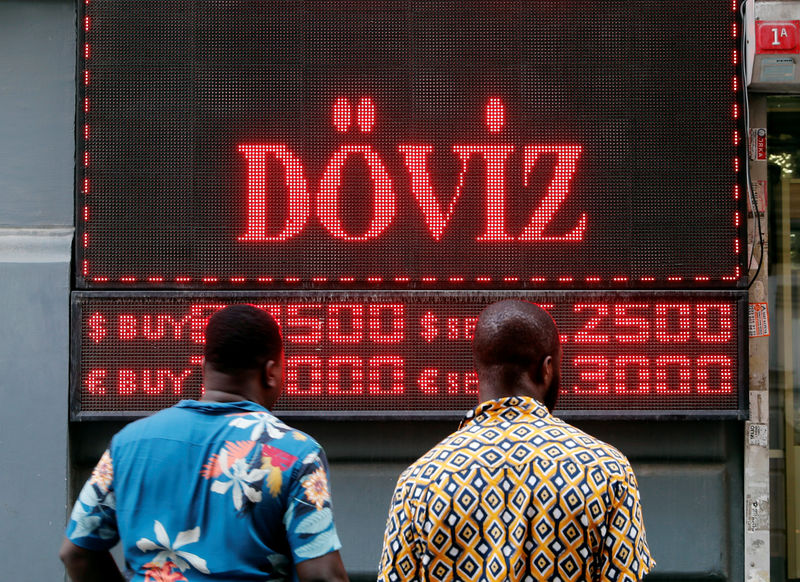ISTANBUL (Reuters) - The Turkish lira weakened on Tuesday as investors weighed up Turkey's efforts to manage its rift with the United States after Finance Minister Berat Albayrak warned U.S. trade sanctions against Ankara could destabilize the Middle East.
The row with Washington over an American evangelical Christian pastor detained in Turkey on terrorism charges has accelerated losses in the lira, which is down about 38 percent against the dollar this year.
More broadly, investors are worried about the direction of monetary policy under President Tayyip Erdogan. The president, a self-described "enemy of interest rates" has repeatedly put public pressure on the central bank and picked Albayrak, his son-in-law, as finance minister.
The attendant sell-off in the lira has raised concerns about the impact on the broader economy - given Turkey's reliance on dollar-denominated energy imports - and a possible surge in bad loans in the banking sector.
"At this point in time Turkey has become pretty much un-tradable," said Tim Ash of BlueBay Asset Management in emailed comments.
"The market wants to see specific delivery on policy whether that is monetary, fiscal or action to clear up problems in the banking sector."
At 1021 GMT, the lira
EUROPEAN TIES
After meeting his French counterpart in Paris, Albayrak highlighted Ankara's push for better ties with Europe and took aim at the United States, saying U.S. sanctions could ultimately aggravate the region's terrorism and refugee crises.
U.S. President Donald Trump this month authorized a doubling of duties on aluminum and steel imported from Turkey, triggering retaliatory measures from Ankara.
Investors are also worried by a U.S. Treasury investigation into state-owned Turkish lender Halkbank (IS:HALKB), which could face a potentially hefty fine over allegations of busting sanctions on Iran. The bank has said all its transactions were legal.
Turkey and the United States are also at odds over their diverging interests in Syria and U.S. objections to Ankara's plan to buy Russian defense systems.
Separately, the government announced a new campaign on Tuesday to support the real estate sector, offering a 10 percent discount on some home sales. Under the campaign, any price increases due to rising exchange rates will be discounted from the cost of the residence, the environment and urbanization minister said.

The main stock index (XU100) rose 1.89 percent on Tuesday to 93,008.72 points.